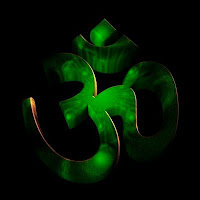Hari
Om
'Freedays' are the 'gather our thoughts' days;
Q&As; a general review of the week so far…
Questions,
questions, questions. Life takes turns; sometimes we float along with nothing
too much stirring our pot; other times we find we are filled with doubts,
insecurities, worries… any amount of disturbance which is likely to cause us to
question.
In
the early stages of undertaking spiritual/philosophical study, it is usually
prompted by one of two things; either we have strong intellectual curiosity… or a strong need for answers to our daily
conundrum. The spectrum of reasons will almost always fall under one or other
of these categories. There are rare exceptions of people who have some level of
sainthood or other significant spiritual strength in their praarabdha (destiny)
and thus spiritual pursuit is their intrinsic nature. Majority times, we have
to have something external to trigger the internal.
In
the first category, it may be that we are simply interested in cultural
influences outside of that with which we are familiar. It could be that we are
not satisfied with intellectual approaches within our own spirito-philosophical
backgrounds and are seeking to fill the gaps from another 'well'. It may be
that, to strengthen our own base, we seek the opposite in order to justify or
deny certain things…. The intellectual reasons for researching scriptural and
doctrinal literature are plentiful. It is a fair bet, however, that many
undertaking such are seeking ways to understand the human condition as it
pertains to society, so there is a macrocosmic perspective to the enquiry.
In
the second category, the vision is more microcosmic and the forays into
philosophy/religious study are to prop up the individual; it is an emotional
need. There can be any number of reasons for this, but the point is they are
still seeking to understand the human condition as it pertains only to
themselves and their immediate connections.
This
is particularly the case where the mind has become full of daily transaction
and not been given a chance to process and dump the useless, the unnecessary
and the harmful. Dreams will often take on a more turbulent quality during such
times. Frequently dreams just happen and we don't recall them, we just know
that we had them. When there is intense disturbance, though, dreams will be
remembered; forget all the symbolism and mysticism surrounding 'interpreting'
dreams. They are simply our vaasanas and worries expressing themselves in the
only way they can in order to prevent a major waking-state emergency. However,
eventually, if things are truly building up, even dream state cannot help - and
deep sleep is totally out of the question at such times - it begins to affect
the waking state. We start to feel tired, drained, lethargic and more, on the
physical level. On the mental level we express stress, patience grows thin, we
become confused and lose sight of what we actually want… so many things to go
wrong! Then, when asked to try and explain why we are in such a state, there is
so much detritus in our thinking that we cannot explain ourselves.
Stage Four.
Regardless
of where you think you are coming from in terms of your current questioning
style, the number of questions, how many are 'weeds' and so on, the little
exercise you have been asked to undertake of late will, it is hoped, be
starting to act like a mirror for you.
Having
been asked to make a more judged sorting in stage three, you will ideally now
have rather less questions and much more focused ones. If you started out with
categories, in going through the stage three process, any further, lurking
tendency to be asking the same question in different formats will have come to
attention.
This
whole exercise is to assist the intellect in regaining control of chaotic
thinking. In the event that very few questions came out at first, going through
stages two and three is likely to have brought more questions to light and at
the same time eliminate them if 'samey' or prove to be stronger questions than
the initial one or two. This type of exercise is to kick-start the intellect
and get a level objectivity, even on subjective matter. Becoming a
self-observer in a truly objective way is an enormous step forward for any
seeker. We have to keep ourselves honest.
Go
back over your refreshed and condensed questions. Across all of them, attempt
to narrow it down to a maximum of three pressing questions. It would be
wonderful if they were of high philosophical enquiry… but the odds are not high
on that. They will almost certainly be about application and practicality of
the philosophy as it pertains to our life. Don't pick the questions you think
'are the right sorts of questions', but the ones you genuinely want to discuss.
Perhaps there will be only one burning question at this time, perhaps there are
several demanding equal attention. If the latter, keep stepping back then returning to reassess. Three is the maximum you are aiming for over this next stage.
Whether you hit on them in the first few days, or whether it takes till the
fourteenth day will be an indicator as to how clarity is developing. On a fresh
page, write out the question/s. Leave all the others to the side for now. Focus
on the questions you have picked.
Now
apply what you have learned and understand from Vedanta until this time. Do not
have the attitude that you 'know'. Rather, ask "what do I know - and how can it help me assess this
question?" There is possibility that as you break open the question under
the laser of Vedanta, a response will indeed reveal itself. Note down any
pertinent points which arise.

